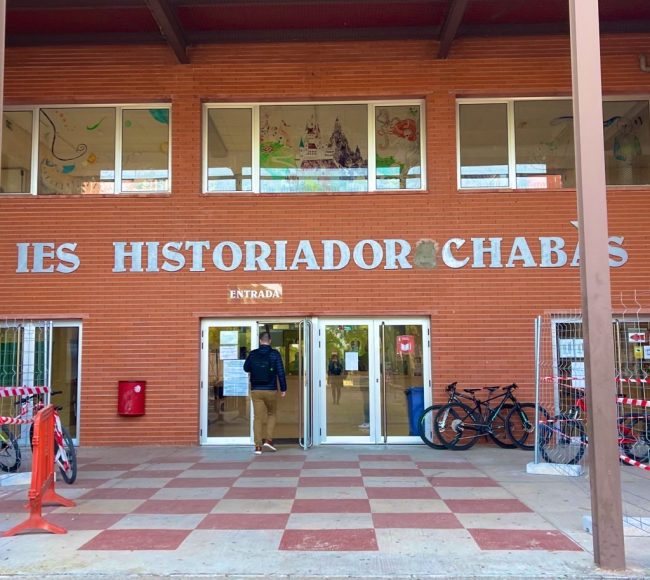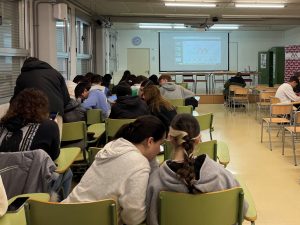#TrainingAVAF
The #DocufòrumAVAF learning experience, created by the Valencian Anti-Fraud Agency for the debate on corruption in the classrooms of the educational centers of the Valencian Community, is one of the most requested training activities of the AVAF.
In the 2022-2023 academic year, the Faculty of Law of the University of Valencia has included the AVAF University Docufòrum activity in the Center Innovation Project (PIC).
The #DocufòrumAVAF is an activity aimed at promoting the social culture of civic ethics, public integrity, fraud prevention and rejection of corruption among students of all University degrees.
On this occasion, the Valencian Anti-Fraud Agency has debated these issues with students of the Double Degree in Law and Criminology, the Degree in Law and the Double Degree in Political Science and Law. Thus, on Tuesday, February 28, 2023, a new #DocufòrumAVAF was held at the Faculty of Law, of the University of Valencia.
106 students of the subject of Constitutional Law I and II of the first and second year participated in the training activity.
The activity had the collaboration of professors Vicenta Tasa and Mariano Vivancos from the Department of Constitutional Law and Political Science and Public Administration. Anselm Bodoque Arribas, head of the AVAF Training Service, was responsible for energizing the debate session with the students.
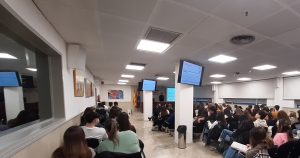 After watching the documentary “Corruption: Harmful Organism”, the students ask questions focused on the origin and causes of corruption, the social impact and collective costs it entails, the perception of corruption in our society and in other countries of our around.
After watching the documentary “Corruption: Harmful Organism”, the students ask questions focused on the origin and causes of corruption, the social impact and collective costs it entails, the perception of corruption in our society and in other countries of our around.
Subsequently, the AVAF representative discusses with the students the issues raised in their questions and others related to the need for greater public ethics and integrity, prevention strategies and civic training or the functions of the Valencian Anti-Fraud Agency and public policies. of fighting corruption.
In the debate, the students showed interest in the investigation procedure and the means available to them in corruption processes, as well as the profile of the Agency’s personnel and the procedure for accessing it. He was also concerned about the strategies to fight against fraud and corruption in Spain, and in the legal framework of integrity of the Valencian Community.
The activity has been organized in collaboration with the University of Valencia, which we thank for its interest and willingness to help create a culture of public integrity and rejection of fraud and corruption.
If you are a university, secondary or baccalaureate teacher and you are interested in having the training activity #DocufòrumAVAF “Corruption: harmful organism” carried out in your subject, do not hesitate to contact the Training Service of the Valencian Anti-Fraud Agency through from training@antifraucv.es.


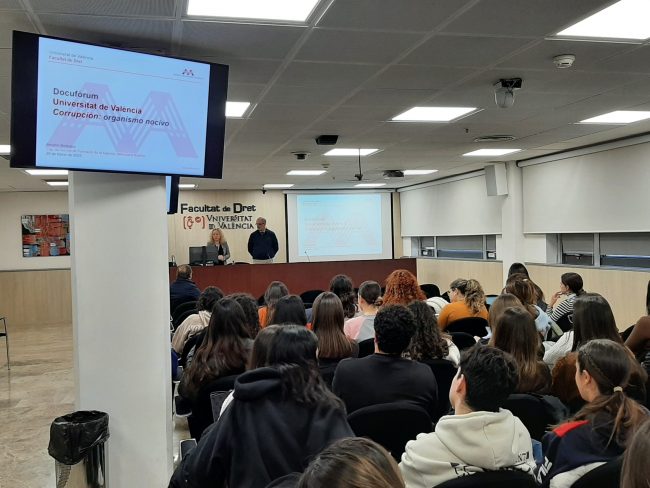
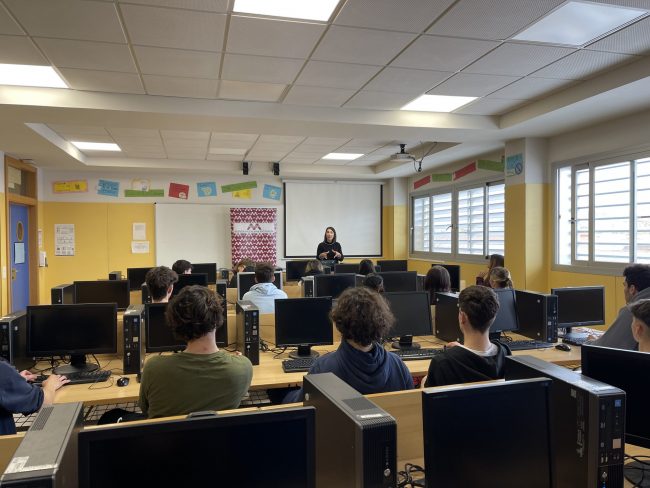
 The 1st year of high school students of the IES Serpis in Valencia watched the documentary “Corruption: harmful organism” on Pandora Box TV, in a first session with the teacher responsible for the activity and heard the testimonies of informants of corruption in the public sector.
The 1st year of high school students of the IES Serpis in Valencia watched the documentary “Corruption: harmful organism” on Pandora Box TV, in a first session with the teacher responsible for the activity and heard the testimonies of informants of corruption in the public sector. The Valencian Antifraud Agency, through the training activity of #DocuforumAVAF, has the opportunity to show in the classrooms of schools, institutes and universities throughout the Valencian Community, the response that Les Corts gave, through the creation of the AVAF, to the mandate of the UN through the United Nations Convention against corruption. In turn, it allows students to share the challenges of the present and future in matters such as public integrity, prevention and protection of informants of corruption.
The Valencian Antifraud Agency, through the training activity of #DocuforumAVAF, has the opportunity to show in the classrooms of schools, institutes and universities throughout the Valencian Community, the response that Les Corts gave, through the creation of the AVAF, to the mandate of the UN through the United Nations Convention against corruption. In turn, it allows students to share the challenges of the present and future in matters such as public integrity, prevention and protection of informants of corruption.